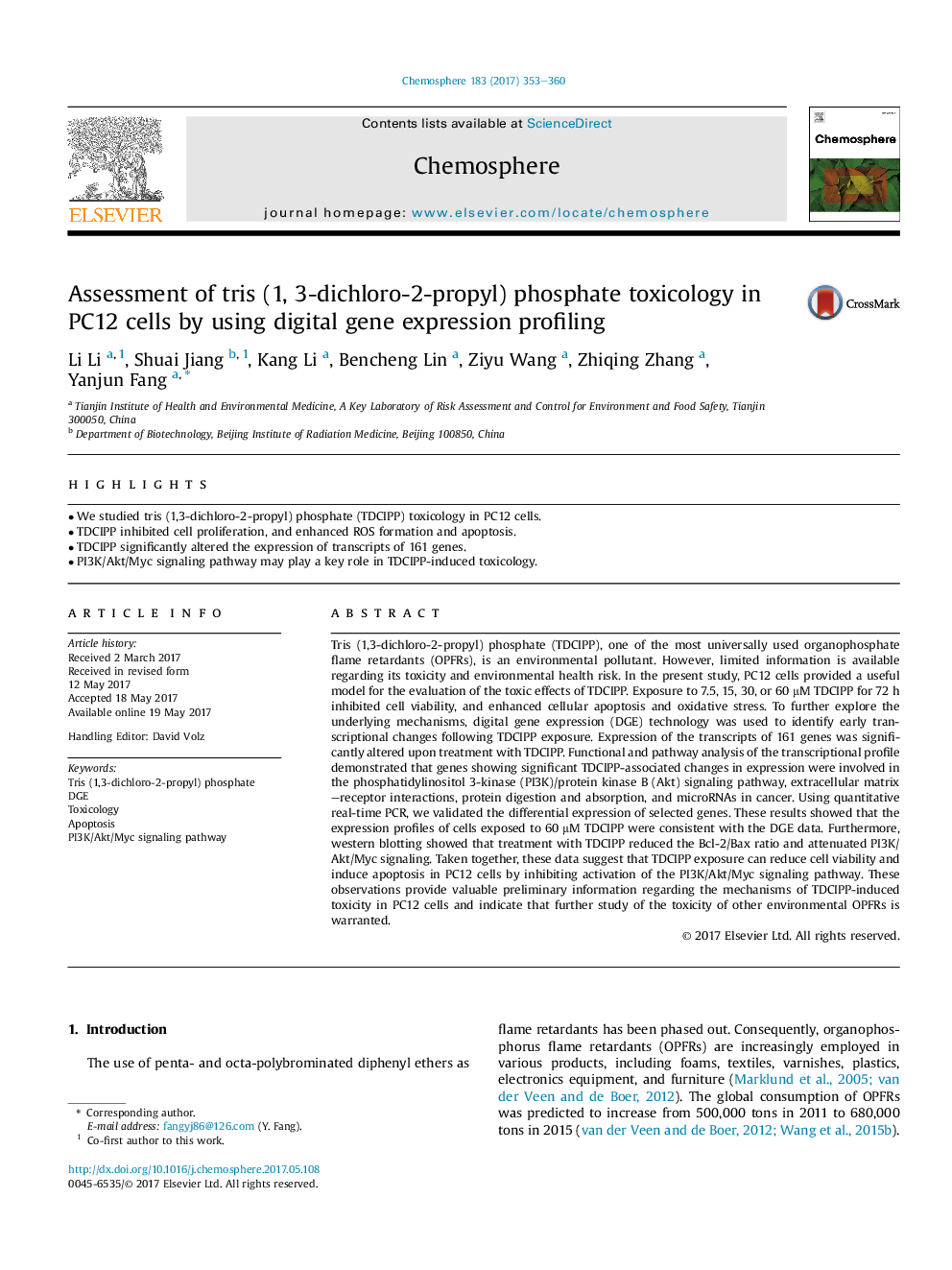| کد مقاله | کد نشریه | سال انتشار | مقاله انگلیسی | نسخه تمام متن |
|---|---|---|---|---|
| 5745974 | 1618788 | 2017 | 8 صفحه PDF | دانلود رایگان |

- We studied tris (1,3-dichloro-2-propyl) phosphate (TDCIPP) toxicology in PC12Â cells.
- TDCIPP inhibited cell proliferation, and enhanced ROS formation and apoptosis.
- TDCIPP significantly altered the expression of transcripts of 161 genes.
- PI3K/Akt/Myc signaling pathway may play a key role in TDCIPP-induced toxicology.
Tris (1,3-dichloro-2-propyl) phosphate (TDCIPP), one of the most universally used organophosphate flame retardants (OPFRs), is an environmental pollutant. However, limited information is available regarding its toxicity and environmental health risk. In the present study, PC12 cells provided a useful model for the evaluation of the toxic effects of TDCIPP. Exposure to 7.5, 15, 30, or 60 μM TDCIPP for 72 h inhibited cell viability, and enhanced cellular apoptosis and oxidative stress. To further explore the underlying mechanisms, digital gene expression (DGE) technology was used to identify early transcriptional changes following TDCIPP exposure. Expression of the transcripts of 161 genes was significantly altered upon treatment with TDCIPP. Functional and pathway analysis of the transcriptional profile demonstrated that genes showing significant TDCIPP-associated changes in expression were involved in the phosphatidylinositol 3-kinase (PI3K)/protein kinase B (Akt) signaling pathway, extracellular matrix-receptor interactions, protein digestion and absorption, and microRNAs in cancer. Using quantitative real-time PCR, we validated the differential expression of selected genes. These results showed that the expression profiles of cells exposed to 60 μM TDCIPP were consistent with the DGE data. Furthermore, western blotting showed that treatment with TDCIPP reduced the Bcl-2/Bax ratio and attenuated PI3K/Akt/Myc signaling. Taken together, these data suggest that TDCIPP exposure can reduce cell viability and induce apoptosis in PC12 cells by inhibiting activation of the PI3K/Akt/Myc signaling pathway. These observations provide valuable preliminary information regarding the mechanisms of TDCIPP-induced toxicity in PC12 cells and indicate that further study of the toxicity of other environmental OPFRs is warranted.
Journal: Chemosphere - Volume 183, September 2017, Pages 353-360